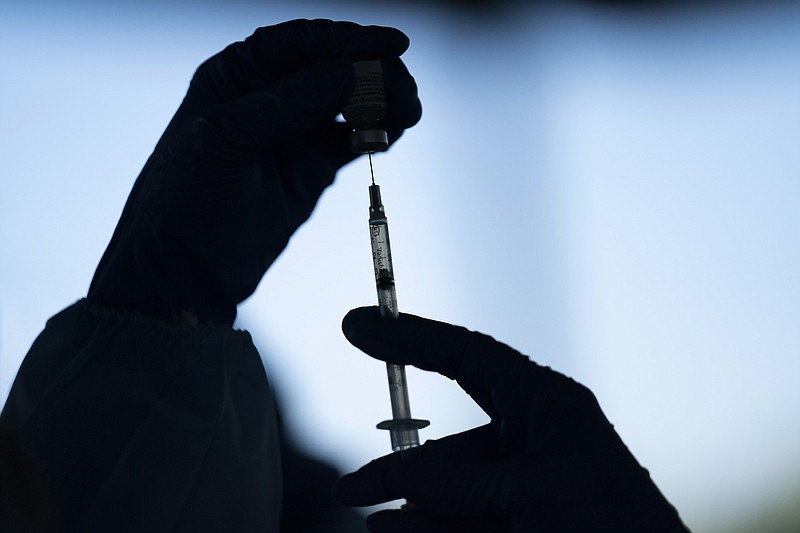COVID-19 deaths in the U.S. are coming down again, hospitalizations are dropping, and new cases per day are about to dip below 100,000 for the first time in two months - all signs that the summer surge is waning.
Not wanting to lose momentum, government leaders and employers are looking to strengthen and vaccine requirements.
Los Angeles enacted one of the nation's strictest vaccine mandates Wednesday, a sweeping measure that would require the shots for everyone entering a bar, restaurant, nail salon, gym or Lakers game. New York City and San Francisco have similar rules.
Minnesota's governor this week called for vaccine and testing requirements for teachers and long-term care workers. In New York, a statewide vaccination mandate for all hospital and nursing home workers will be expanded Thursday to home care and hospice employees.
Across the nation, deaths per day have dropped by nearly 15 percent since mid-September and are now averaging about 1,750. New cases have fallen to just over 103,000 per day on average, a 40 percent decline over the past three weeks.
The number of Americans now in the hospital with COVID-19 has declined by about one-quarter since its most recent peak of almost 94,000 a month ago.
"What we're seeing is what we've seen in the prior three surges," said Dr. Marybeth Sexton, an infectious-disease specialist at Emory University School of Medicine. "What we need to remember is when we see these numbers go down, it's not a signal to let up. It's a signal to push harder."
If people give up masks and social distancing and stop getting vaccinated, "we could be right back here in the winter with surge five," she said.
The decreases have been especially sharp in several Deep South states, where cases have gone down more than twice as fast as they have nationwide. Louisiana, Mississippi, Alabama and Arkansas all saw their case numbers cut in half over the past two weeks.
What's behind the decline isn't entirely clear, though health experts point out that the numbers are falling as more are people getting vaccinated and new requirements for the shot are being put in place by government and private employers.
The decrease in case numbers could also be due to the virus running out of susceptible people in some places.
Several big companies and institutions with vaccine requirements are seeing high compliance rates. In Denver, 92% of its municipal employees have gotten the shot, well above the city's overall rate.
Ochsner Health, Louisiana's largest health system, said last week that 82 percent of its employees were fully vaccinated. But this week, a group of employees sued to block the mandate, which includes making unvaccinated spouses pay an extra $200 a month in health insurance.
Three of North Carolina's largest health systems said on Wednesday that more than 99 percent of the roughly 88,000 workers they collectively employ have gotten a shot or an approved medical or religious exemption. Just under 300 workers at Duke Health, UNC Health and Novant Health have quit or been fired over their refusal to comply.
Health care giant Kaiser Permanente put more than 2,200 employees nationwide - roughly 1 percent of its workforce - on unpaid leave because they have chosen not to get vaccinated. They have until Dec. 1 to get their shots or lose their jobs.
Since its vaccination requirement was announced, the inoculation rate among employees has gone from 78 percent to 92 percent, Kaiser said.
"Vaccine requirements work. New data reinforces that fact each day," White House COVID-19 coordinator Jeff Zients said Wednesday.
The easing of cases, death and hospitalizations is happening along with other encouraging developments, including the possibility that vaccinations for 5-to-11-year-olds will become available in a matter of weeks and the first pill for treating people sick with COVID-19 could reach the market by year's end.

